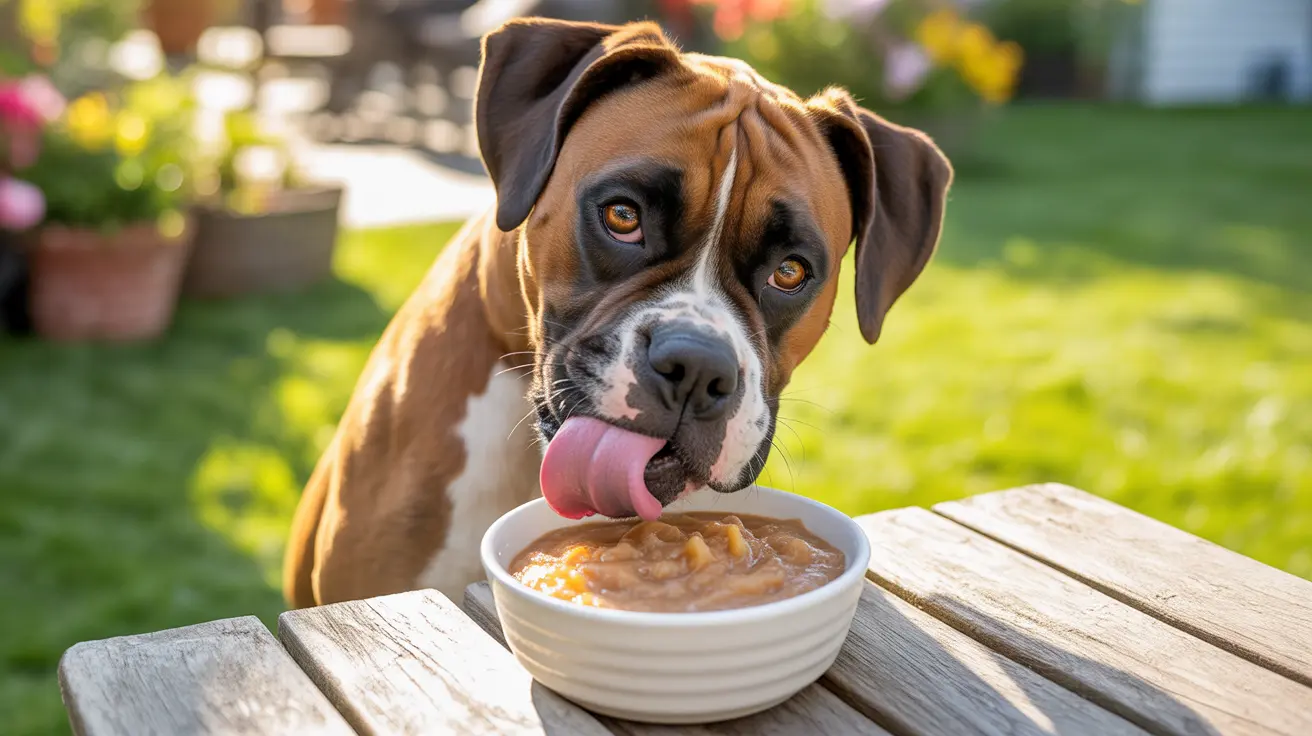Is Unsweetened Applesauce Safe for Dogs?
Many pet parents wonder about sharing human foods with their furry friends, and applesauce is no exception. The good news is that dogs can safely enjoy unsweetened applesauce as an occasional treat, provided it's served properly and without harmful additives.
However, not all applesauce is created equal, and some varieties can be dangerous for your canine companion. Understanding what to look for and how to serve this treat safely is crucial for your dog's health and wellbeing.
Benefits of Feeding Dogs Unsweetened Applesauce
Unsweetened applesauce offers several nutritional benefits when served as part of a balanced diet:
- Dietary fiber for digestive health
- Natural vitamins and minerals
- Antioxidants for immune support
- Low-calorie treat option
- Good source of hydration
How to Choose Safe Applesauce for Dogs
Selecting Store-Bought Options
When purchasing applesauce for your dog, carefully check the label for:
- No added sugars
- No artificial sweeteners (especially xylitol)
- No spices or additives
- No preservatives
- Simple, natural ingredients
Making Homemade Dog-Safe Applesauce
The safest option is making applesauce at home:
- Wash and peel fresh apples
- Remove cores and seeds completely
- Cut into small pieces
- Simmer in water until soft
- Blend until smooth
- Cool before serving
Proper Serving Sizes and Guidelines
Portion control is essential when feeding applesauce to dogs:
- Small dogs: ¼ to ½ teaspoon
- Medium dogs: ½ to 1 teaspoon
- Large dogs: 1 to 2 teaspoons
Never exceed 10% of your dog's daily caloric intake for treats, including applesauce.
Potential Risks and Warning Signs
Watch for these warning signs when introducing applesauce:
- Digestive upset
- Diarrhea or vomiting
- Allergic reactions
- Changes in behavior or appetite
Stop feeding applesauce and consult your veterinarian if you notice any adverse reactions.
Creative Ways to Serve Applesauce
Make applesauce more engaging for your dog:
- Freeze in ice cube trays for summer treats
- Use as a food topper
- Mix with plain yogurt
- Stuff in Kong toys
- Add to homemade dog treats
Frequently Asked Questions
Can dogs safely eat unsweetened applesauce, and what ingredients should I avoid?
Yes, dogs can safely eat unsweetened applesauce. Avoid products containing added sugars, artificial sweeteners (especially xylitol), spices, and preservatives. Always check labels carefully and opt for plain, natural applesauce.
How much unsweetened applesauce can I give my dog without causing stomach upset?
The safe amount depends on your dog's size. Small dogs should have no more than ½ teaspoon, medium dogs up to 1 teaspoon, and large dogs up to 2 teaspoons. Start with smaller amounts and monitor for any digestive issues.
What are the health benefits of feeding my dog unsweetened applesauce in moderation?
Unsweetened applesauce provides dietary fiber, vitamins, antioxidants, and hydration. It can aid digestion, support immune function, and serve as a healthy, low-calorie treat option.
Is homemade applesauce better for dogs than store-bought, and how do I prepare it safely?
Homemade applesauce is generally better because you control the ingredients. To prepare safely, remove all seeds and cores, peel the apples, cook until soft, and blend without adding any sweeteners or spices.
Why is xylitol in some applesauce dangerous for dogs, and how can I spot it on labels?
Xylitol is extremely toxic to dogs and can cause rapid blood sugar drops, liver failure, and death. Check ingredient labels for "xylitol" or "sugar alcohols." If in doubt, contact the manufacturer or choose a different product.
Final Thoughts
Unsweetened applesauce can be a healthy, enjoyable treat for dogs when served properly. Always prioritize safety by choosing plain varieties or making your own, and remember that moderation is key. When in doubt, consult with your veterinarian before introducing any new foods to your dog's diet.






